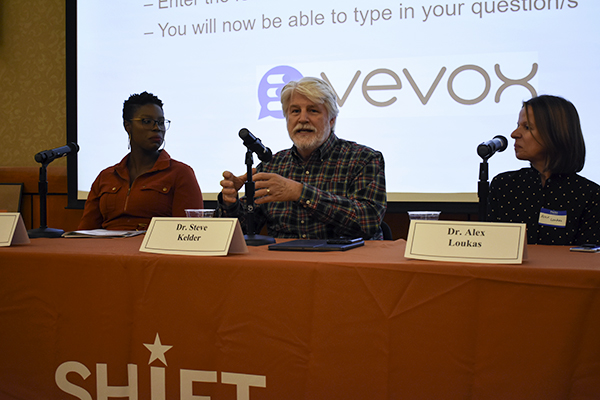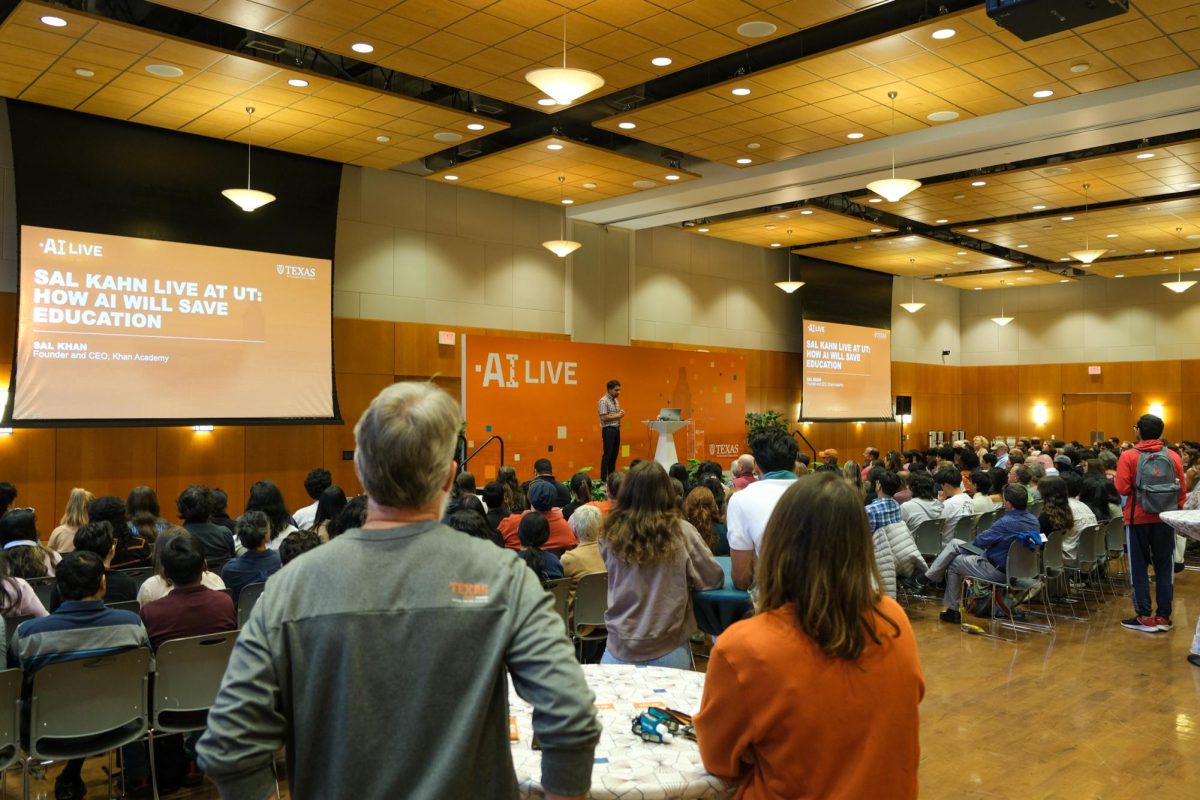SHIFT, an on-campus initiative that strives to change the culture surrounding substance use on campus, hosted a discussion Wednesday night where experts discussed students’ questions about vaping.
SHIFT was launched in the fall of 2019 to develop a culture of care surrounding students’ substance use through community and conversation, SHIFT director Kate Lower said.
“There’s a lot of noise around vaping, but we’re not really talking about it,” Lower said. “We want to ask more questions. We want to start this conversation around vaping.”
Students digitally submitted questions, which then led the panel discussion. Some questions addressed whether students should be concerned about the consequences of vaping and what tools are available for students looking to quit or cut back on vaping.
“I was interested in how SHIFT was taking a different approach rather than just scare tactics,” SHIFT student adviser Davis Roe said. “(Just) thinking more holistically as how we can have a more productive conversation.”
Steve Kedler, an expert on the panel, said electronic cigarettes are not more harmful than tobacco. The severity of e-cigarettes’ long-term effects is unknown.
“We’re going to have to wait another 40 years to find out what the long-term health effects are of e-cigarettes,” said Kedler.
A large issue with e-cigarettes is the lack of regulation surrounding it, expert Alexandra Loukas said.
“I worry a lot about flavors,” said Loukas, kinesiology and health education professor. “I think that’s what attracts kids. I worry about preliminary regulations that are currently being passed and implemented, which are really very few.”
Loukas said there’s some regulation around flavors and for Juuls specifically, but no other product.
“I think this is a major problem,” Loukas said. “We’re going to continue to run into products. We’re going to have companies playing around with the limited regulations and continue to sell these products.”
Expert Nosse Ovienmhada said that because e-cigarettes are more concealable than regular cigarettes, it’s a difficult thing to monitor.
“One of the things we’ve been very mindful about is really educating individuals,” said Ovienmhada, Tobacco-Free Campus coordinator.
Biology senior Elizabeth Service said she came to have her questions about e-cigarettes answered.
“I wanted to learn more about vaping because I know it’s pretty mainstream amongst college students,” Service said. “I know with cigarettes since we’ve had them for a long period of time we’re able to understand the long-term effects. With e-cigarettes, it is pretty new.”


















